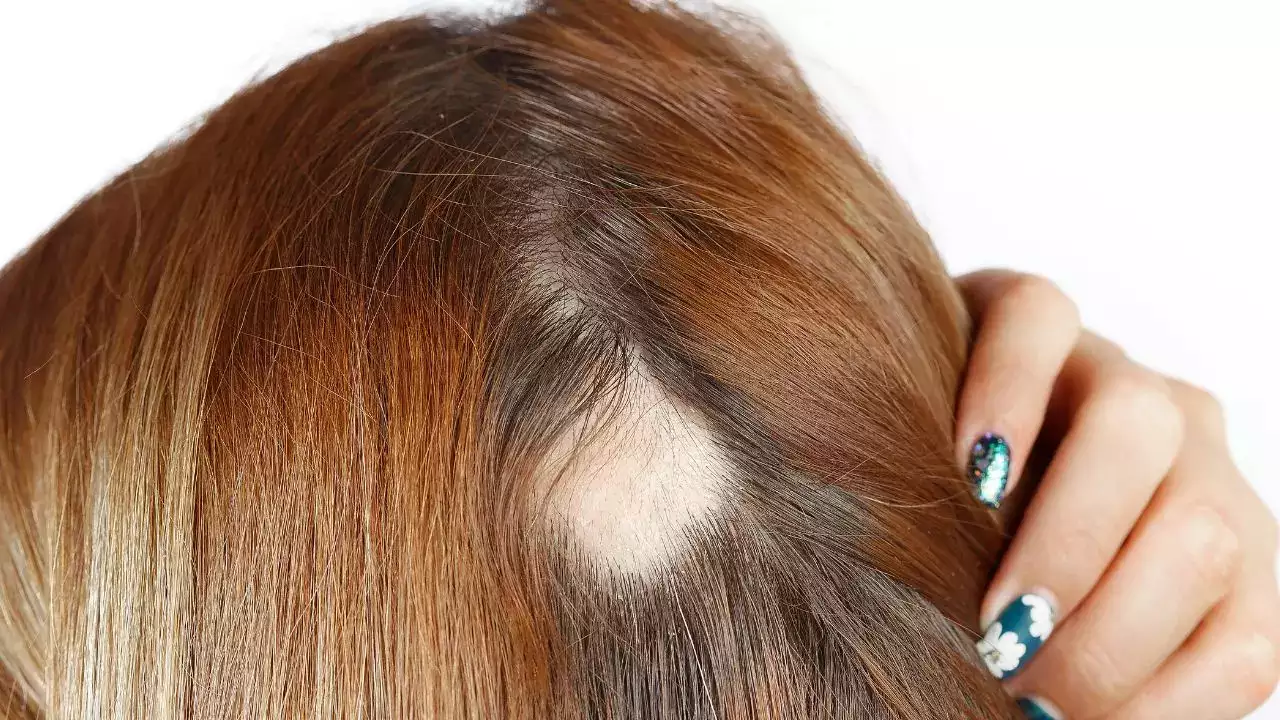
Alopecia Cases On Rise Post Covid; Expert Lists Causes And Treatment Options. (Image: Canva)
Losing hair is a trouble that nobody wants to go through in their lifetime but sometimes it becomes inevitable for many of us. Some people experience hair loss in the later stages of their lives and for some this depressing process starts in the 20s itself. Hair loss and hair fall should be addressed immediately.
Alopecia Areata is one of the most common hair fall disorders - which has grown in severity since COVID. Alopecia means baldness and areata mean the patches of hair loss and is commonly seen in men and women of all age groups. Alopecia areata causes the hair to fall in small round patches on the scalp and other parts of the body. Alopecia areata is not bound by age or gender and most commonly appears in people during adolescence or early adulthood and shows varying degrees of effects in everyone who has it.
Times Now Digital spoke to Dr. Rinky Kapoor, Consultant Dermatologist, Cosmetic Dermatologist & Dermato-Surgeon, The Esthetic Clinics, to understand what causes this disease and what are the treatment options.
What causes alopecia areata?
The body mistakes the healthy substances as foreign attackers and the immune system goes into defensive mode and starts fighting against the foreign invaders in an autoimmune condition. In this case, the immune system attacks the hair follicles and they start to shrink and become smaller leading to thinner hair and eventually hair loss. There can be several contributory factors that trigger alopecia areata such as:
- Family history
- Diabetes
- Arthritis
- Viral infection
- Hormonal changes
- Trauma
- Emotional or physical stress
Symptoms of Alopecia Areata
In a maximum number of cases, the first main symptom of it is the appearance of patches on the scalp. These patches can be several centimeters in diameter. The hair loss also progresses to eyelashes, eyebrows, beard, arms, legs, and other parts of the body. In some people, the symptoms are slow to appear but in some cases, it can be rapid and irreversible.
Alopecia areata looks like bald areas with scattered hair in the shape of ‘exclamation marks’. These can be broken patches or tapered in the end.
The diagnosis: The hair fall treatment for alopecia areata depends on various factors such as the age of onset, the extent of hair loss, changes in nails, and other medical conditions. A simple trichoscopy and skin biopsy will also help the hair specialist determine the type and cause of hair loss better.
Alopecia Treatment Options
The hair regrowth treatment in India for alopecia areata will depend on your age, the location of hair loss, and the amount of hair loss you have. If the hair fall specialist in India diagnoses that the alopecia areata is less than a year old then your hair might growth back on its own without much treatment.
Treatment options:
- Topical treatments for alopecia areata in India: topical medicinal treatments are available as OTC and by prescription: Minoxidil, which needs to be applied twice daily. It can be used on the scalp, eyebrows, and beard.
- Antraline irritates the skin to stimulate hair growth.
- Corticosteroid creams, foams, lotions, and ointments are used to decrease the inflammation of the hair follicle.
- Intralesional corticosteroid injections: These injections are used to speed up hair regrowth after alopecia areata. They are generally used to treat mild patchy alopecia areata and the treatment needs to be repeated every one or two months.
Apart from the treatment patients suffering from alopecia areata benefit greatly with support groups and counselling. By the time the treatment for alopecia areata takes effect, patients can also use various options such as wigs, hair fibers, microblading, eyelash extensions, and eyebrow pigmentation. to camouflage the balding area.
Get Latest News Live on Times Now along with Breaking News and Top Headlines from Health and around the world.